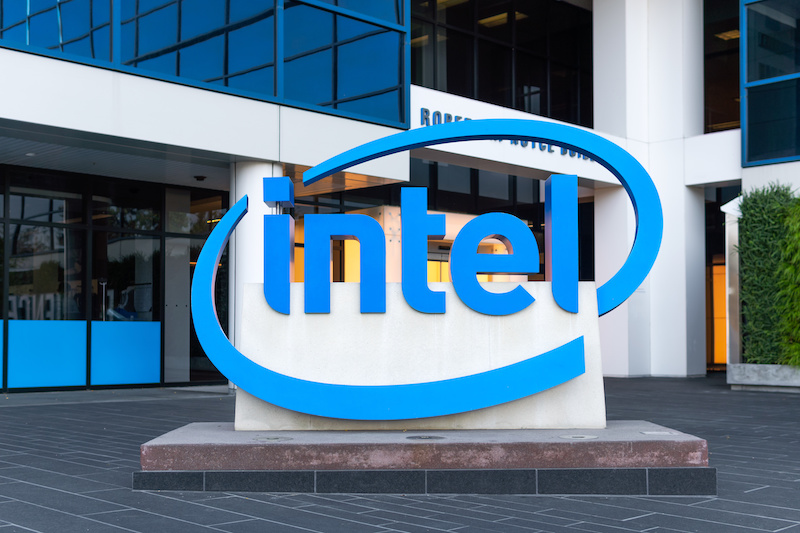Security News

Intel today revealed the data security and privacy upgrades that will be introduced to the upcoming 3rd generation Intel Xeon Scalable processors code-named Ice Lake and specifically built to power data center platforms. "Intel is doubling down on its Security First Pledge, bringing its pioneering and proven Intel Software Guard Extension to the full spectrum of Ice Lake platforms," the chip manufacturer said.

Intel 471 has announced the release of a MISP integration with premium cybercrime feeds. MISP is an open source threat intelligence platform for gathering, sharing, storing and correlating indicators of compromise of targeted attacks, threat intelligence, financial fraud information, vulnerability information or even counterterrorism information.

Security software outfit McAfee has filed to return to the stock market. McAfee has been there before: when Intel bought the company in 2010 it was listed on the New York Stock Exchange.

The 11th Gen Intel Core processors, Intel Atom x6000E series, and Intel Pentium and Celeron N and J series bring new artificial intelligence, security, functional safety and real-time capabilities to edge customers. "By 2023, up to 70% of all enterprises will process data at the edge. 11th Gen Intel Core processors, Intel Atom x6000E series, and Intel Pentium and Celeron N and J series processors represent our most significant step forward yet in enhancements for IoT, bringing features that address our customers' current needs, while setting the foundation for capabilities with advancements in AI and 5G," said John Healy, Intel vice president of the Internet of Things Group and general manager of Platform Management and Customer Engineering.

Four of the seven former eBay employees charged with cyberstalking a couple critical of the web auction house are scheduled to plead guilty next month. In June, the US Justice Department charged six former staffers - director of safety and security James Baugh, 45, of San Jose, California; director of global resiliency David Harville, 48, of New York City; manager of global intelligence Stephanie Stockwell, 26, of Redwood City, California; and eBay Global Intelligence Center staffers Stephanie Popp, 32, Veronica Zea, 26, and Brian Gilbert, 51, all of San Jose - with conspiring to commit cyberstalking and tamper with witnesses.

Four of the seven former eBay employees charged with cyberstalking a couple critical of the web auction house are scheduled to plead guilty next month. In June, the US Justice Department charged six former staffers - director of safety and security James Baugh, 45, of San Jose, California; director of global resiliency David Harville, 48, of New York City; manager of global intelligence Stephanie Stockwell, 26, of Redwood City, California; and eBay Global Intelligence Center staffers Stephanie Popp, 32, Veronica Zea, 26, and Brian Gilbert, 51, all of San Jose - with conspiring to commit cyberstalking and tamper with witnesses.

The Intel vPro® platform has been around for over a decade as the company's official branding for business-grade laptops and desktops, combining specific technologies and enhancements that differentiate vPro platforms from those that may have comparable specifications but are otherwise essentially consumer hardware. Since its introduction, the vPro platform - tagline 'Built for Business' - has evolved from an early focus on helping IT to effectively manage systems into a comprehensive suite that enhances performance and the end user experience, delivers greater manageability, strengthens security and provides greater stability of the platform for corporate buyers.

Intel this week released security patches to address a critical vulnerability in Active Management Technology and Intel Standard Manageability. The bug, which Intel calls improper buffer restrictions in network subsystems, could be abused by unauthorized users to escalate privileges via network access in provisioned AMT and ISM versions before 11.8.79, 11.12.79, 11.22.79, 12.0.68 and 14.0.39.

Intel patched a critical privilege escalation vulnerability in its Active Management Technology, which is used for remote out-of-band management of PCs. AMT is part of the Intel vPro platform and is primarily used by enterprise IT shops for remote management of corporate systems. The issue, found internally by Intel employees, ranks 9.8 out of 10 on the CVSS scale, making it critical severity, according to Intel in a Tuesday security advisory.

August 2020 Patch Tuesday was expectedly observed by Microsoft and Adobe, but many other software firms decided to push out security updates as well. The German software corporation known for its enterprise software marked its Security Patch Day with the release of 15 security notes and an update to a previously released one.